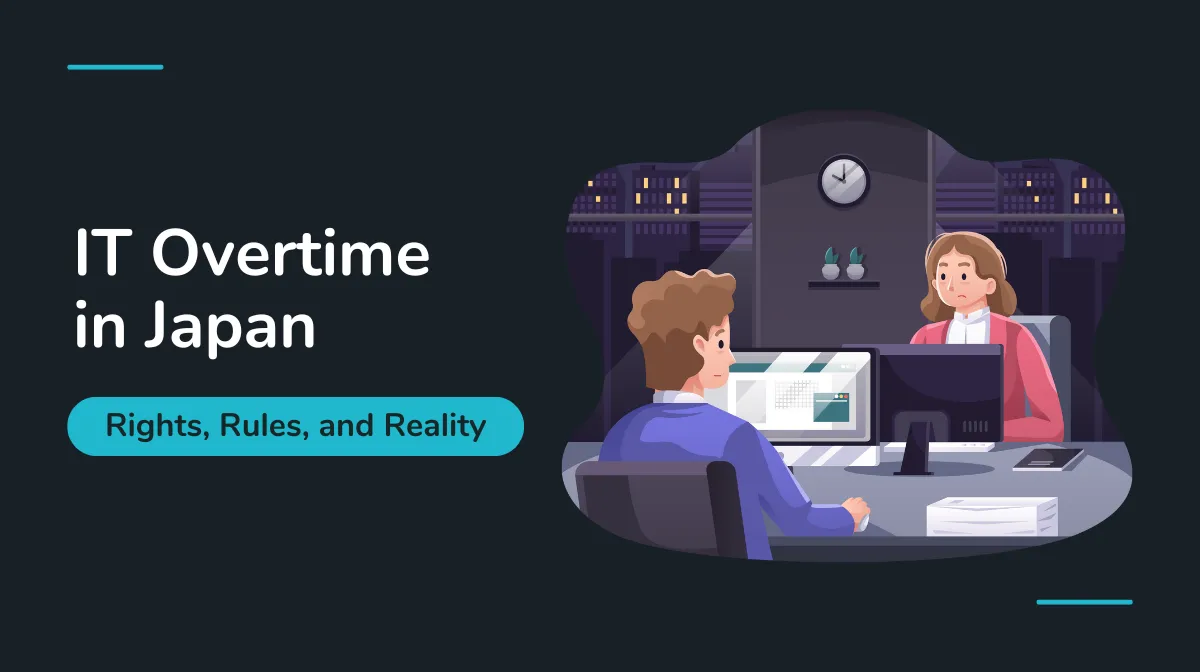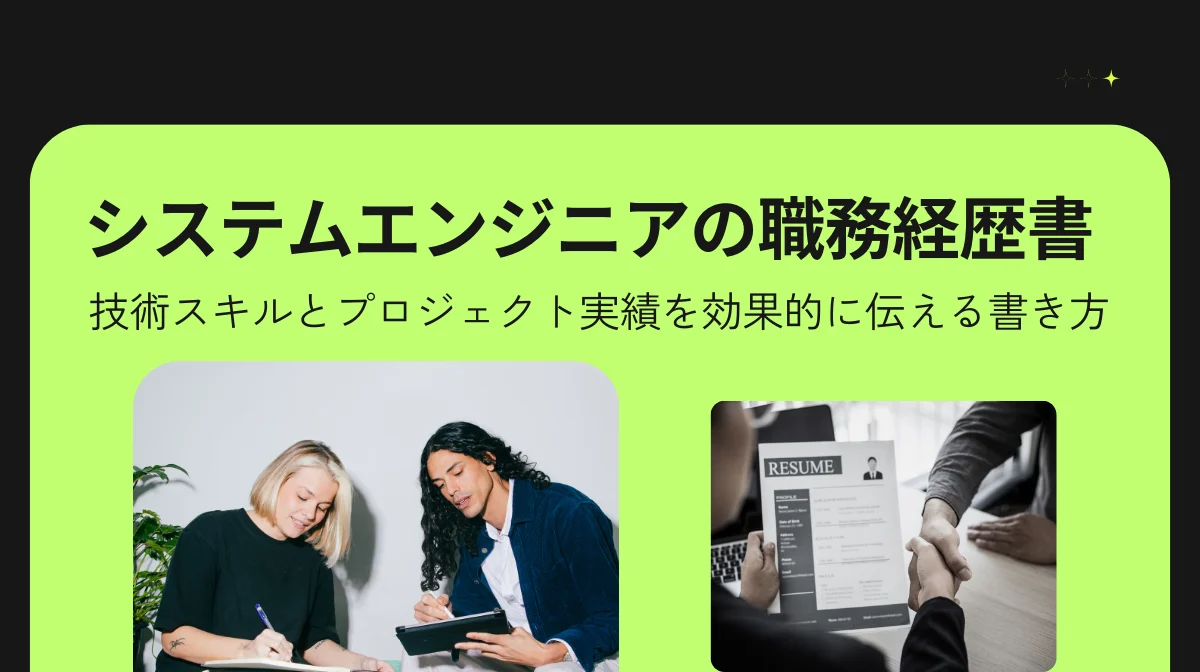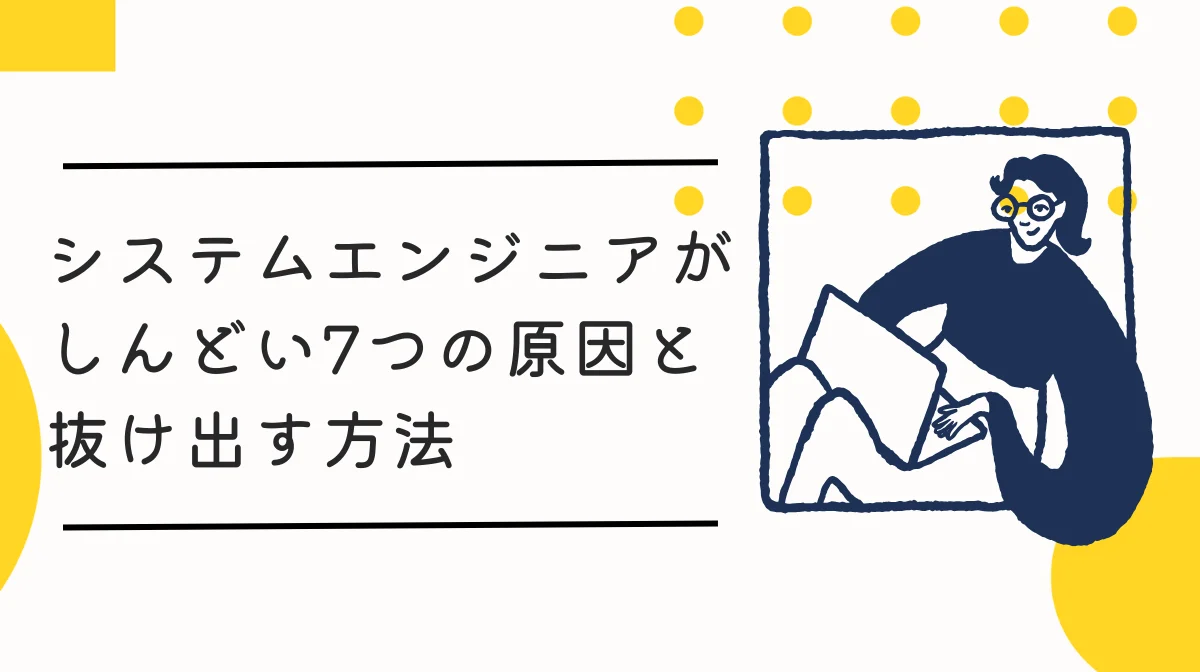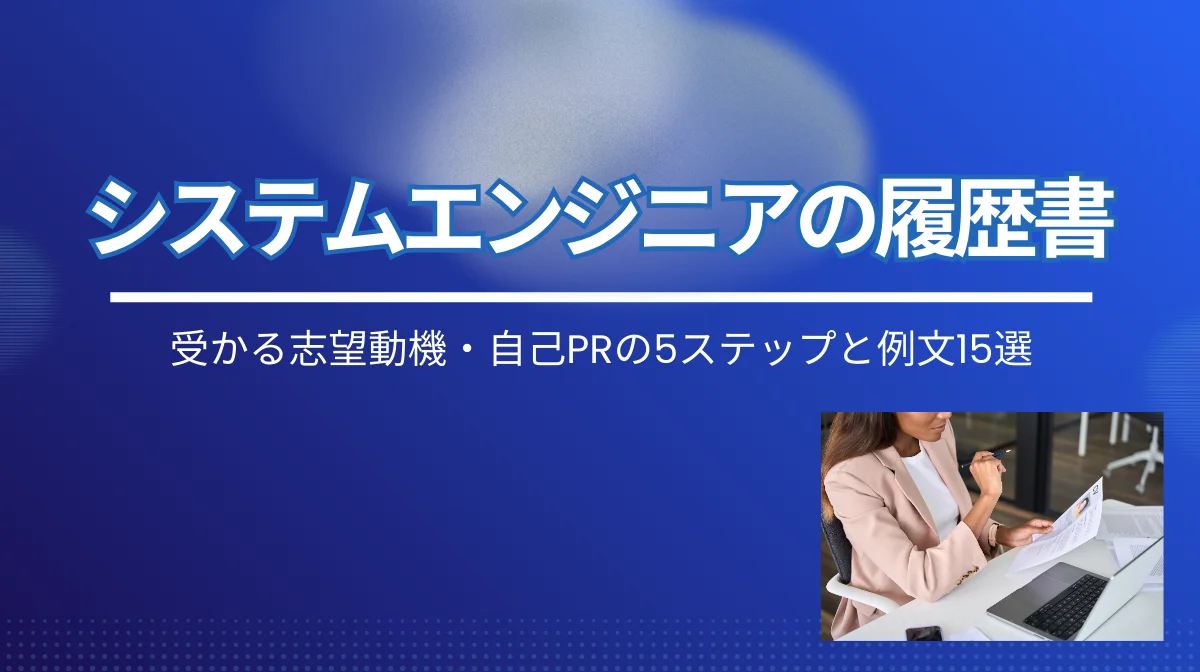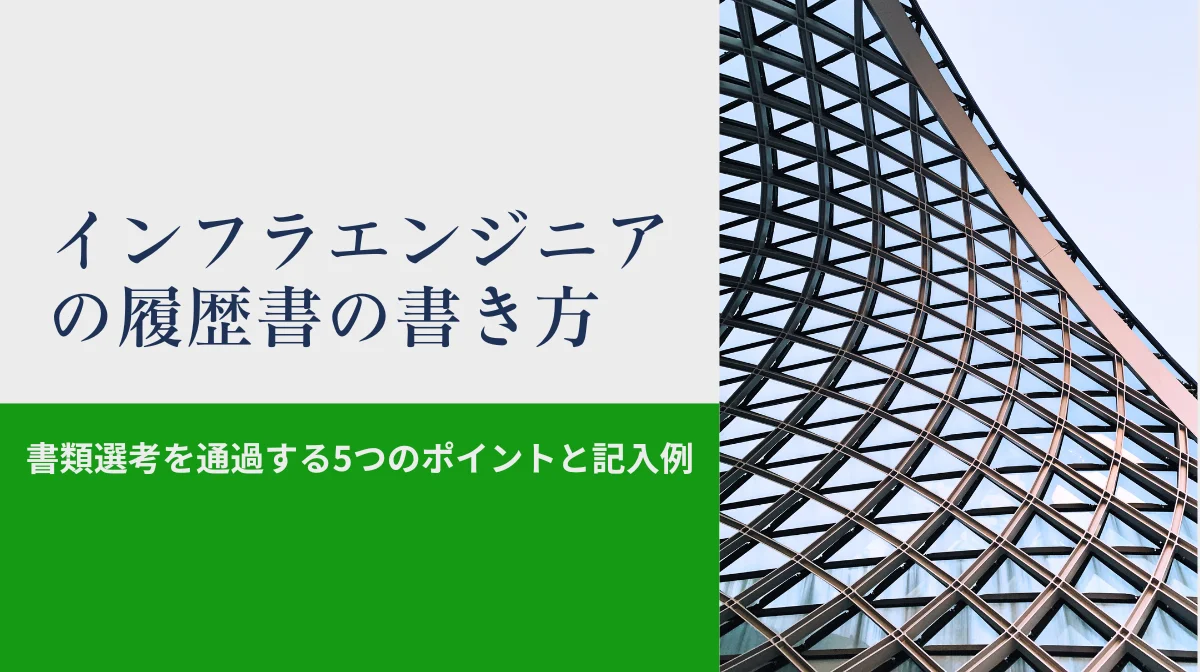The overtime work culture continues to persist in Japan’s IT industry.
While there are signs of improvement due to work style reforms, long working hours remain commonplace in many cases due to IT-specific circumstances such as project deadlines and system maintenance requirements.
This article explains practical techniques for understanding and appropriately handling Japan’s overtime culture.
- How to handle overtime in Japan’s IT sector.
- Your legal rights and protections for overtime work.
- Ways to build a sustainable career in Japanese tech.
1. Understanding Japan’s Overtime Culture

Although work style reforms have led to some improvements, overtime culture remains deeply rooted in Japan.
Below, we’ll explore the characteristics and factors of Japan’s overtime culture, examining IT industry-specific overtime circumstances and comparing them with global companies to explain key points for engineers to handle overtime appropriately.
Background and Factors Behind Overtime
Several factors contribute to the prevalence of overtime in Japanese companies
- High workload per person
- Chronic labor shortage due to declining working population
- Voluntary overtime for additional pay
- Insufficient management and work administration
- Tendency for work to concentrate on specific individuals (“personalization”)
- Existence of evaluation criteria where “overtime = hard work”
- Excessive morning assemblies, meetings, and conferences
These factors stem from corporate inefficiencies and cultural elements. In particular, Japan’s unique workplace culture of “prioritizing harmony with others” contributes to the perpetuation of overtime.
Characteristics of Overtime in the IT Industry
The main causes of overtime in the IT industry are project deadlines and emergency responses to system issues.
Particularly in system development and maintenance operations, overtime tends to become routine when unexpected problems arise that require quick resolution.
Furthermore, the IT industry as a whole faces a chronic labor shortage, and multi-tier subcontracting structures lead to increased workloads.
Differences in Overtime Culture Between Japanese and Global Companies
Japanese companies strongly emphasize “achieving results through team cooperation,” “consideration for colleagues and superiors” and “consciousness of progress and process” making it difficult to set clear boundaries for work. This tends to normalize long working hours across the workplace.
Global companies fundamentally operate on a “performance-based” system, where working styles that emphasize results are common. This leads to efficient work within business hours, with overtime typically limited to exceptional cases.
They also promote initiatives that prioritize work-life balance, implementing effective measures to reduce overtime.
Overtime Response Required from Engineers
For engineers to handle overtime appropriately, the following points are important
- Clearly prioritize tasks and work efficiently
- Share progress regularly and distribute work across the team
- Consult with supervisors and colleagues as needed, proposing resource reallocation or work review
Additionally, when overtime continues, it’s essential to maintain health and take adequate rest. If workplace improvements are difficult, consulting with the Labor Standards Inspection Office is one option.
2. Legal Rights and Protections Regarding Overtime

Japan has the Labor Standards Act, which includes detailed provisions about working hours. Below, we explain the definition of overtime, calculation of overtime pay, and the Article 36 Agreement.
Definition and Regulation of Overtime in the Labor Standards Act
The Labor Standards Act stipulates that legal working hours are 8 hours per day and 40 hours per week. Work beyond these legal working hours is called “overtime work,” and employers must pay premium wages.
Meanwhile, work exceeding prescribed working hours within legal working hours is paid at regular wages.
For example, if prescribed working hours are 7 hours per day, 5 days a week (35 hours total)… overtime up to 5 hours per week within 8 hours per day and 40 hours per week is considered statutory internal overtime and paid at regular wages.
However, work exceeding the legal working hours of 40 hours per week becomes statutory overtime and requires premium wages.
Overtime Pay Calculation and Rights
The Labor Standards Act requires premium wages for work exceeding legal working hours.
Premium wage rates
- Overtime work up to 60 hours per month: Hourly wage × 1.25 (25% increase)
- Overtime work exceeding 60 hours per month: Hourly wage × 1.5 (50% increase)
- Late-night work (10:00 PM to 5:00 AM): Hourly wage × 1.25 (25% increase)
- Holiday work (working on statutory holidays): Hourly wage × 1.35 (35% increase)
For example, if a worker with an hourly wage of 1,000 yen works 70 hours of overtime in a month, the first 60 hours receive 1,250 yen (25% increase) in premium wages, and the remaining 10 hours receive 1,500 yen (50% increase).
Additional premiums apply for late-night work or holiday work.
Basics of the Article 36 Agreement and Practical Impact
The Article 36 (or “36”) Agreement is a labor-management agreement based on Article 36 of the Labor Standards Act, establishing rules for overtime and holiday work beyond legal working hours.
Without this agreement, requiring work beyond legal working hours is generally illegal.
The overtime limit set by the Article 36 Agreement is 45 hours per month and 360 hours per year. However, in special circumstances, a “Special Provisions Article 36 Agreement” can be concluded allowing overtime within the following limits.
Possible overtime ranges
- Annual overtime limit: Within 720 hours
- Monthly limit for overtime + holiday work: Less than 100 hours
- 2-6 month average overtime: Within 80 hours per month
■日本でエンジニアとしてキャリアアップしたい方へ
海外エンジニア転職支援サービス『 Bloomtech Career 』にご相談ください。「英語OK」「ビザサポートあり」「高年収企業」など、外国人エンジニア向けの求人を多数掲載。専任のキャリアアドバイザーが、あなたのスキル・希望に合った最適な日本企業をご紹介します。
▼簡単・無料!30秒で登録完了!まずはお気軽にご連絡ください!
Bloomtech Careerに無料相談してみる
3. Practical Methods for Handling Overtime
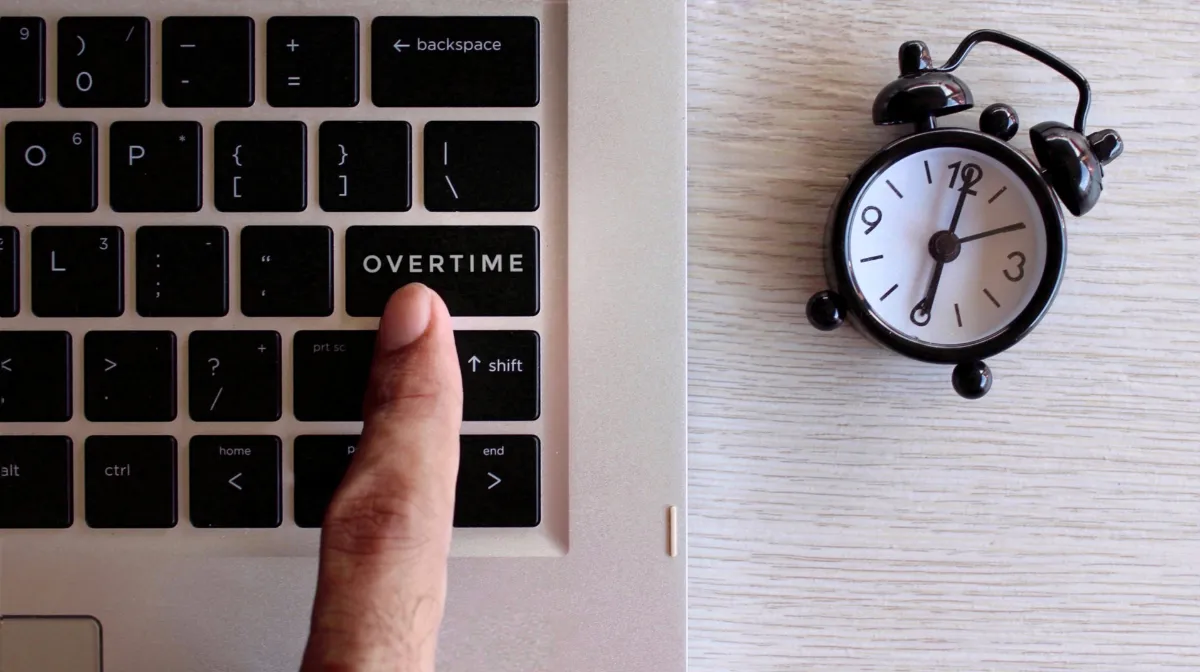
Below we explain specific methods for handling overtime in Japanese companies. Communication and time management are key points to consider carefully.
Communication Techniques for Declining Overtime
To maintain good workplace relationships, it’s recommended to handle refusals diplomatically. The following points are effective
- In Japan, there’s a culture of apologizing first, so begin with “I apologize”
- Provide specific reasons (e.g., family commitments)
- Offer alternatives (e.g., “I can’t today, but tomorrow would work”)
Example response when boss asked “Could you work overtime?”
“I apologize, but due to [specific reason], I cannot work overtime today. However, I could work overtime tomorrow if that would work for you?”
Key Points for Building Relationships with Supervisors and Colleagues
Japanese companies typically employ a membership-style employment system where good relationships with supervisors and colleagues are particularly valued.
As a result, job roles aren’t strictly fixed, and the attitude of “I only need to finish my own work” isn’t well-received.
For example, you can build smooth relationships by helping with work the next day after declining overtime.
Project Management and Time Management Practice
If unnecessary overtime is prevalent in the workplace, consider proposing overtime reduction through project management and time management.
Specific methods include
- Track time for each task and clarify work priorities
- Review work content and methods to eliminate waste
Focusing on these points can not only reduce overtime but potentially improve company-wide productivity and performance.
Handling Overtime During Remote Work
While remote work offers benefits like reduced commute time and improved work-life balance, it can sometimes lead to increased overtime due to difficulties separating work and personal time.
Remote work overtime solutions
- Clearly define working hours
- Accurately report and claim overtime
- Visualize work content and tasks
- Set clear rules for switching between work and personal time
4. Achieving Healthy Work Practices

Below we explain specific methods and important points for working healthily as an engineer. Let’s make working in Japan more healthy and comfortable by focusing on several key points.
Specific Strategies for Efficient Work Execution
To increase work efficiency, concrete actions like “tackling high-priority tasks first” and “concentrating on work within limited time” are important.
Use appropriate tools to streamline time management, task management, and information sharing.
Additionally, building relationships with supervisors and colleagues and organizing work processes and issues can reduce unnecessary work in the long term. Try to identify inefficient habits and causes of mistakes, as this can lead to improved efficiency.
Design and Implementation of Work-Life Balance
Maintaining physical and mental health is crucial for long-term success as an engineer. Be especially careful in Japanese companies, where long working hours and work-centered lifestyles tend to be valued.
We recommend consciously designing and implementing work-life balance that includes family life, hobbies, rest, and recreation.
Stress Management and Mental Health Care
Engineers face daily challenges like tight deadlines and technical issues, making stress management crucial.
Working under stress doesn’t increase efficiency, and if physical and mental issues arise, continuing work becomes difficult.
Basics of stress management
- Ensure sufficient sleep and rest
- Incorporate suitable coping methods for stress
Effective stress relief methods include moderate exercise, listening to music, travel, shopping, and relaxation activities like massage or yoga.
It’s also important to express emotions, so we recommend finding someone you can talk to easily.
■日本でエンジニアとしてキャリアアップしたい方へ
海外エンジニア転職支援サービス『 Bloomtech Career 』にご相談ください。「英語OK」「ビザサポートあり」「高年収企業」など、外国人エンジニア向けの求人を多数掲載。専任のキャリアアドバイザーが、あなたのスキル・希望に合った最適な日本企業をご紹介します。
▼簡単・無料!30秒で登録完了!まずはお気軽にご連絡ください!
Bloomtech Careerに無料相談してみる
5. Troubleshooting

Working in a foreign country can lead to problems due to cultural and custom differences.
Below we explain specific techniques for preventing problems and available consultation resources when issues arise.
Techniques for Avoiding Cultural Conflicts
Japanese companies have cultures that foreign workers might find unfamiliar, such as emphasis on hierarchical relationships and seniority, detailed reporting requirements, acceptance of long working hours, punctuality, and reserved emotional expression.
You might want to voice opinions about these aspects. However, in Japan, new organization members actively expressing opinions tends to be discouraged.
We recommend observing and mimicking colleagues’ and seniors’ behavior when first joining. Once familiar with the new environment, you can significantly reduce the risk of unnecessary problems.
Prioritize adapting to the organization and culture first.
Using Consultation Services and Support Resources
It’s important to know support systems in advance to handle problems appropriately when they arise.
Recently, Japan has increased consultation services for foreign workers in local government offices and organizations due to the growing foreign worker population.
For example, specialized services like the “Foreign Workers Consultation Hotline” and “Labor Conditions Consultation Hotline” handle inquiries about working conditions and workplace issues.
These services often support multiple languages, allowing consultation without language barriers.
6. Long-term Career Strategy

Below we explain career strategies for engineers from other countries to succeed long-term in Japan.
Managing the Balance Between Skill Development and Overtime
To continue growing as an engineer, it’s essential to actively learn and incorporate both directly job-related skills and emerging technologies.
Improving skills can increase work efficiency and potentially reduce unnecessary overtime.
Maintain balance: Working with absolutely no overtime might create difficulty fitting into the workplace environment and limit career advancement opportunities. Therefore, accept moderate overtime to support colleagues while balancing personal skill development.
Evaluation Points When Considering Job Changes
When seeking career advancement through job changes, consider several important points. Review each when evaluating potential employers.
Work content
- Verify that it matches your skills and leads to career and skill advancement
- Working hours
- Check prescribed working hours, overtime, and frequency of holiday work
- Benefits
- Consider both statutory benefits (employment insurance, workers’ compensation, health insurance, pension) and additional benefits like commuting allowance, housing assistance, and childcare support
- Leave
- Confirm annual holidays and paid leave utilization rates
Building a Global Career
Engineers from other countries working in Japan can build global careers by effectively utilizing knowledge, experience, and networks developed in both their home country and Japan.
Additionally, improving Japanese language ability, engineering skills, and career advancement are major factors that expand career options.
Accumulating such efforts enables adaptation to more diverse workplace environments and roles, expanding opportunities for global success.
Keys to Successful Long-term Employment in Japan
To work stably long-term in Japan, understanding and respecting Japanese culture and business manners is essential.
Additionally, deepening knowledge of Japanese labor laws and social systems makes it easier to achieve better working conditions.
Building trust with Japanese colleagues and finding people to consult about concerns and problems is also important for reducing stress and preventing issues.
7. Understanding Japanese Overtime Leads to Healthy Work Practices
While overtime is deeply rooted in Japanese workplace culture, healthy work practices are achievable with appropriate knowledge and response strategies.
It’s important to understand legal rights and maintain effective communication while balancing your career and work-life balance.
Let’s put the methods introduced in this article into practice and work toward creating a better workplace environment.

